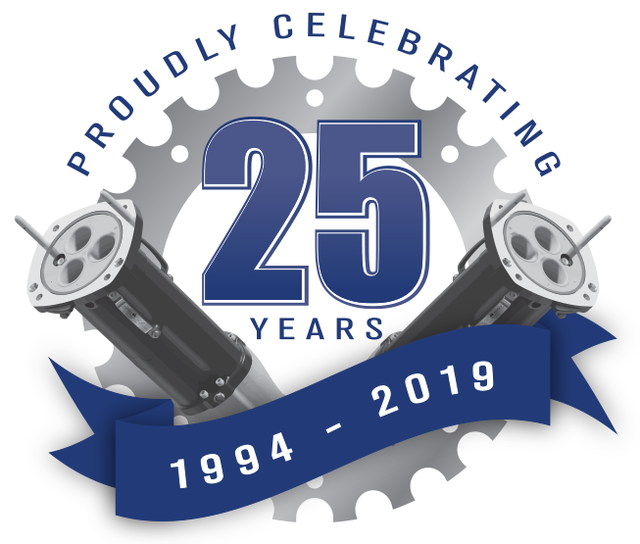COVID-19 | OPERATIONS
Fly-in fly-out mine workers: adapting for a post-Covid-19 world
The Australian mining sector has proved incredibly resilient during the Covid-19 outbreak, in part thanks to the adaptation of fly-in fly-out workers. Heidi Vella asks: as the country emerges from lockdown, how will the crisis affect the future of these workers?


As the coronavirus pandemic hit Australia, and interstate borders shut down, many of the country’s fly-in fly-out (FIFO) mine workers had to decide whether to move to another state or accept longer rosters to keep operations going. In some cases, miners relocated their entire families.
For the industry bottom line, the fast response has paid off. The mining sector, which was labelled ‘essential’ by the federal government, has proved one of the most resilient to the crisis, with few operations shut down.
At the time of writing, no workers are reported to have contracted Covid-19 at mine sites, suggesting that measures taken to reduce risk of infection, such as testing, social distancing, and transporting employees via charter and not commercial flights, have been successful.
But with no real end to the pandemic on the horizon, there is uncertainty around how FIFO operations will continue into the future and whether the extra demands on workers could prove detrimental to their wellbeing in the longer-term.
More than half of the country’s coal mines are managed by pro-Russian separatist militia.Credit: DmyTo/Shutterstock.
More than half of the country’s coal mines are managed by pro-Russian separatist militia.
Credit: DmyTo/Shutterstock.
New normal
“Mine operations have been extremely cautious with their employees’ health. There have been significant increases in cleaning, longer rosters implemented, altered catering facilities, and Covid-19 testing to combat the risks,” says Chris Kent, regional director of Hays recruitment agency in Western Australia.
“In Western Australia specifically, the state has been extremely lucky with low case numbers and strict restrictions implemented. Meaning most workers have felt safe and happy to continue working at remote mine sites.”
Due to travel restrictions and quarantine measures within Australia, of the 6,000 FIFO workers in Western Australia that travel between states, around half relocated to Perth during the shutdown, according to David Bissel, associate professor, School of Geography, at The University of Melbourne and Australian Research Council future fellow.
“Our research shows that longer rosters contribute to greater strains on households over time.”
Bissel has been conducting research into the social impact of FIFO for several years and is working on a new coronavirus related report due to be published soon. He says that besides workers’ physical health, there is a concern that new rosters could have a negative impact on employees’ family life.
“That’s a lot of people who are essentially separated from their families for a really long time, months on end, and our research shows that longer rosters contribute to greater strains on households over time,” says Bissel. “These longer separations will be putting added burdens on left-behind families during lockdown, especially those with children.”
As restrictions are eased, companies are starting to return to some normal rostering. But across the industry, for the short-term at least, some longer shifts are expected to remain.

AusProof is celebrating 25 years of business in Australia in 2019.
Mine worker mental health must be a priority
Dr Jess Gilbert, research fellow at the Future of Work Institute, Curtin University, is also running a study on the impact of changes to FIFO work during Covid-19. She says that in Western Australia, for example, the border isn’t expected to open any time soon, meaning that longer rosters or relocation will continue for the foreseeable future. Therefore, mining managers should be conscious of workers’ mental health if employees are spending longer times away from home.
“Feeling lonely and having low levels of autonomy can be problematic to mental health and we know that FIFO workers are already disproportionately affected in this regard; therefore, any decisions that companies make in the future should ensure mental health is supported,” she says. “There should be opportunities on site to connect and socialise and exercise, as well as quality communication facilities so workers can talk to their friends and family.”
Bissel agrees that companies must take some responsibility for the mental health of workers and not individualise it: “There are things that can be done, such as making sure that employment assistance programmes are less stigmatised than they are currently. As part of our research, we’ve had quite a few conversations with FIFO workers who were suffering and wanted to talk about it with their employers but felt they would be stigmatised if they spoke out.”

AusProof is celebrating 25 years of business in Australia in 2019.
Longer-term impact
Could the longer rosters and difficulty of interstate movement deter people from the mining sector and see others leave?
“That’s an interesting question. On the one hand, this experience will be very tough for many families, but at the same time, because of the economic circumstances, we could see many more people having to undertake FIFO roles as unemployment rises across Australia,” says Bissel. “If there are fewer work options locally, people will need to look further afield for work and so FIFO roles could actually increase.”
Rob Tyson, founder of Mining International, a global mining consultancy service, and host of the ‘Dig Deep’ mining podcast, agrees.
“I don’t think it's going to deter people from mining necessarily. Other sectors will likely see mass unemployment, whereas I think the mining industry will hold its own, or maybe increase depending on the commodity. For example, gold mining is going to increase, and maybe copper.”
“Because of the economic circumstances, we could see many more people having to undertake FIFO roles as unemployment rises across Australia.”
Tyson says that FIFO operations for Australians and other expats working abroad will likely be more impacted. Australian and British nationals working FIFO at mine sites in Africa, often for six-weeks-on and three-weeks-off rotas, have had to work remotely, requiring departmental managers to deal with most people on-site, he says.
In the longer term, this could lead to less jobs, he adds: “I think that numbers could reduce, they will have seen the results with having less expats on site and if they’re happy with it, then they might reduce the numbers.”
Quarantine requirements could also extend rosters which would deter the use of foreign workers.
“If you’re working six-weeks-on and three-weeks-off, that roster could be extended by an extra two weeks because workers will be required to quarantine for two weeks, potentially doing nothing,” he says.

AusProof is celebrating 25 years of business in Australia in 2019.
New skills and challenges
Despite its resiliency during Covid-19, managing travelling workforces is a huge challenge for mining companies, one that could potentially be reduced by increased adoption of automation. Could the pandemic speed-up technology investment?
“Potentially, mining companies are looking to do that anyway,” says Tyson. “I think a lot of miners and new people coming into the industry will need different skills and experiences anyway, workers will need to be upskilled to work with the machines.”
However, Bissel adds that it is still up for debate how intensified automation will be, with some of his industry contacts saying the economics don’t always add up.
“It is unlikely that automation outside of the usual plans, including drill rigs and trucks, will be prioritised.”
“Certainly, it will have some impact on worker numbers, but automation can be a good thing. It's such a difficult and physically demanding job, opening this sector up to a range of roles will appeal to more people, which can result in increased diversity in the workforce, which is a benefit.”
But, considering the global economic turmoil that could see miners’ CAPEX budgets slashed, it’s unlikely that additional plans will be in the pipeline, says Kent.
“Mine site automation requires significant planning and expenditure. Considering the immediate impact of Covid-19, it is unlikely that automation outside of the usual plans, including drill rigs and trucks, will be prioritised.”

AusProof is celebrating 25 years of business in Australia in 2019.
Risks remain
Although research shows that, for some, FIFO working can fit into their lives really well, for others it can be an extremely challenging environment. Post- Covid-19, it is likely to be more so. Risks will remain, says Bissel.
“Anything involving travel puts people at greater risk of exposure to the virus. Social distancing can minimise exposure, but it can't eliminate it. And even though Australia is doing well reducing the spread of the virus now, we’re nervous about the potential for a second wave and we could be looking at a more challenging situation down the line.”

AusProof is celebrating 25 years of business in Australia in 2019.
